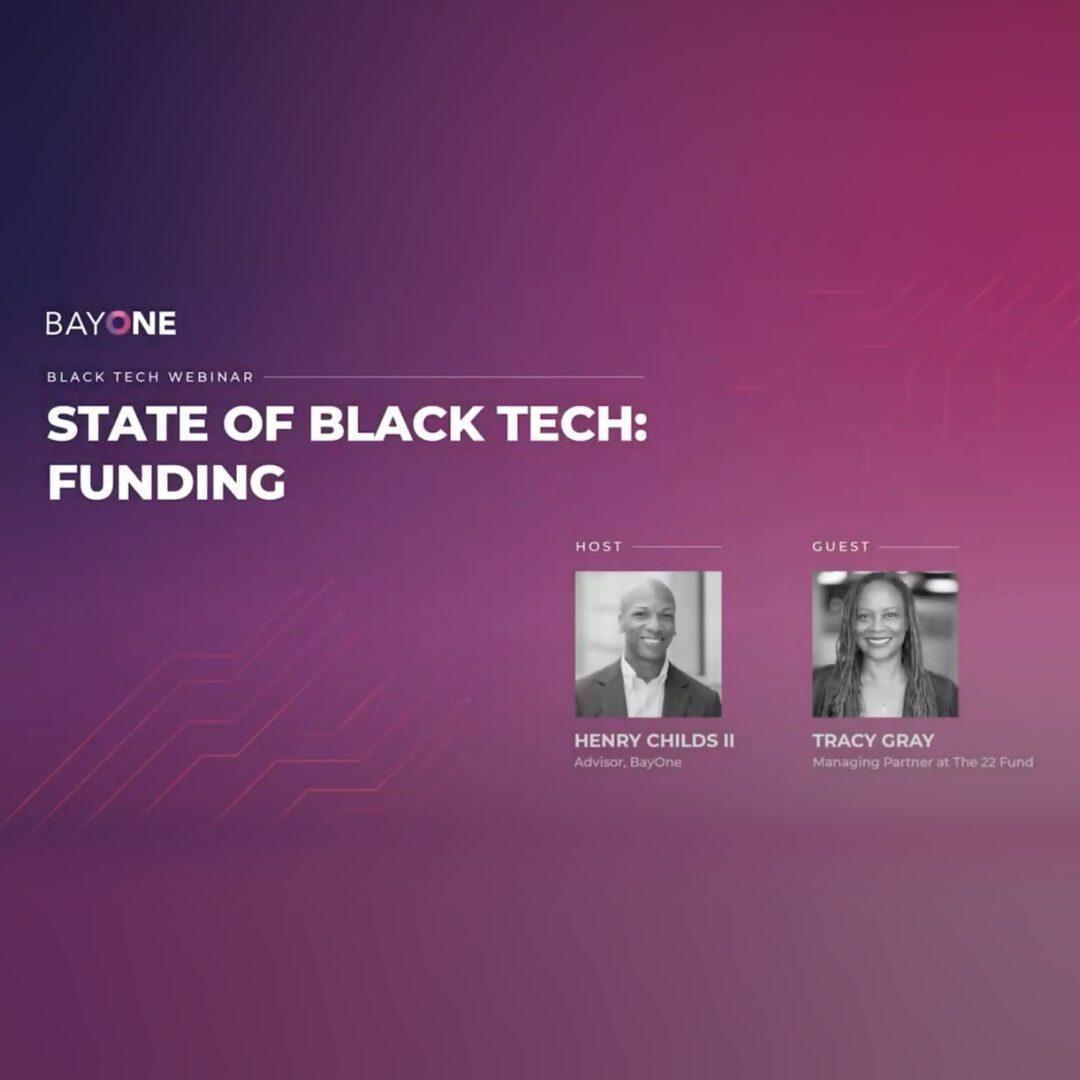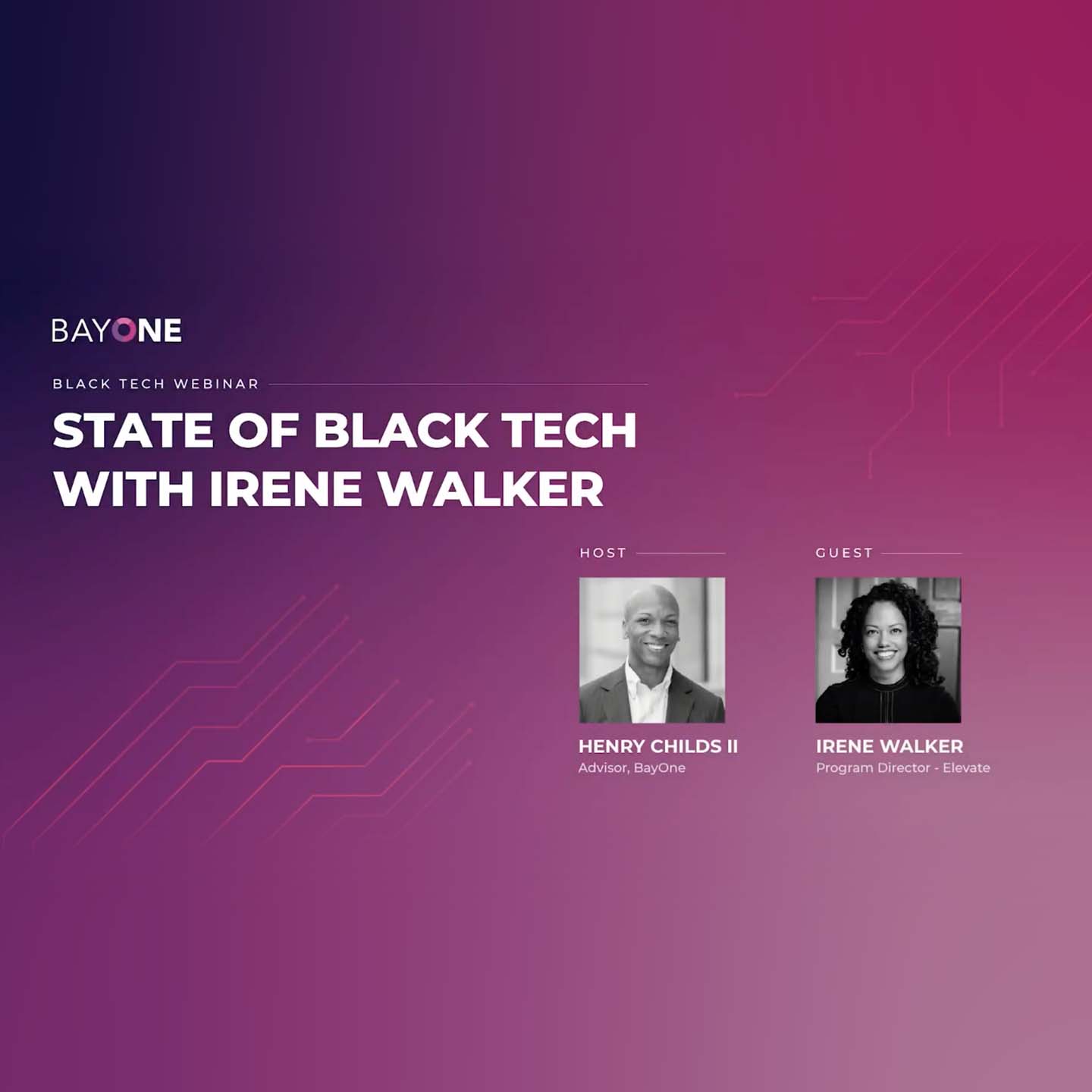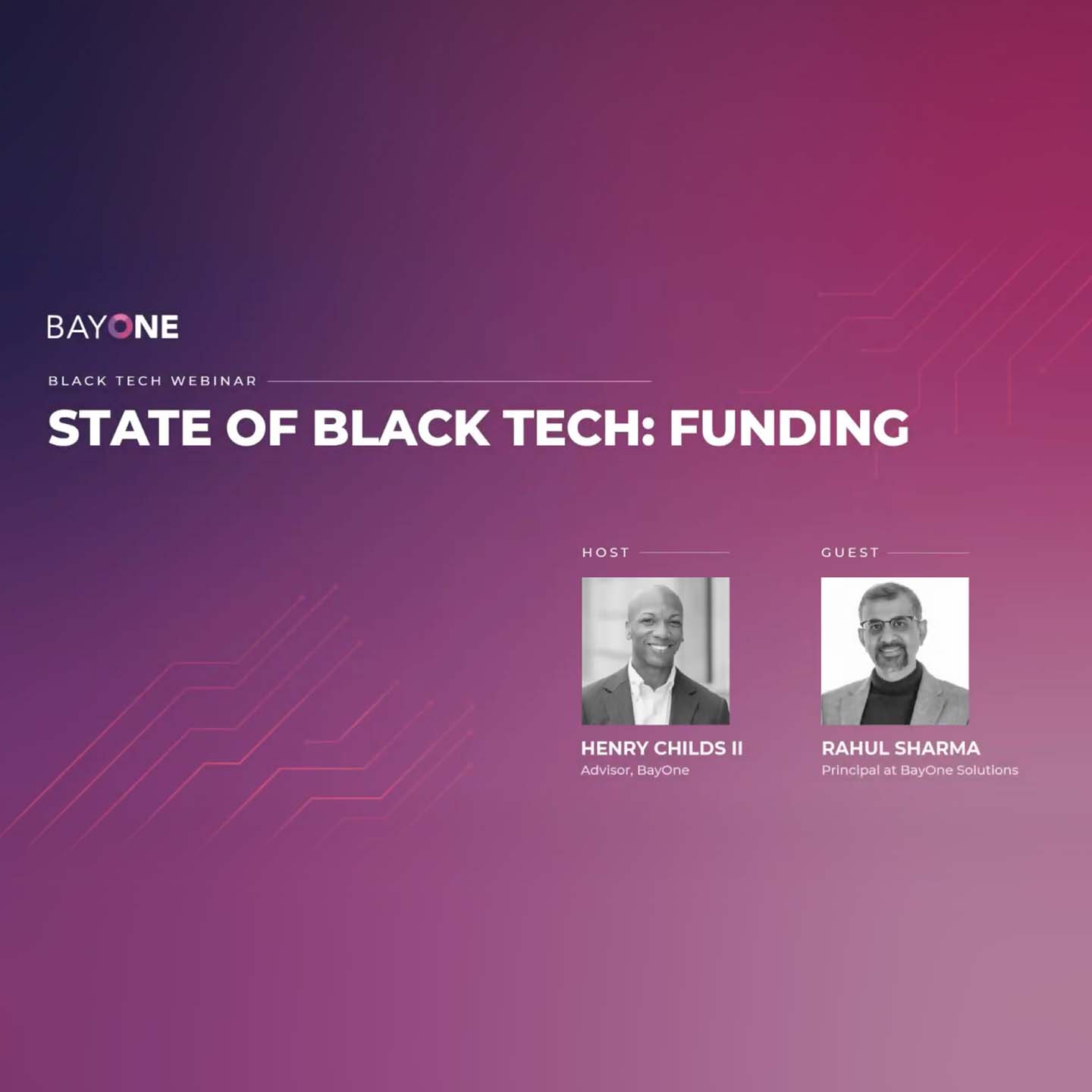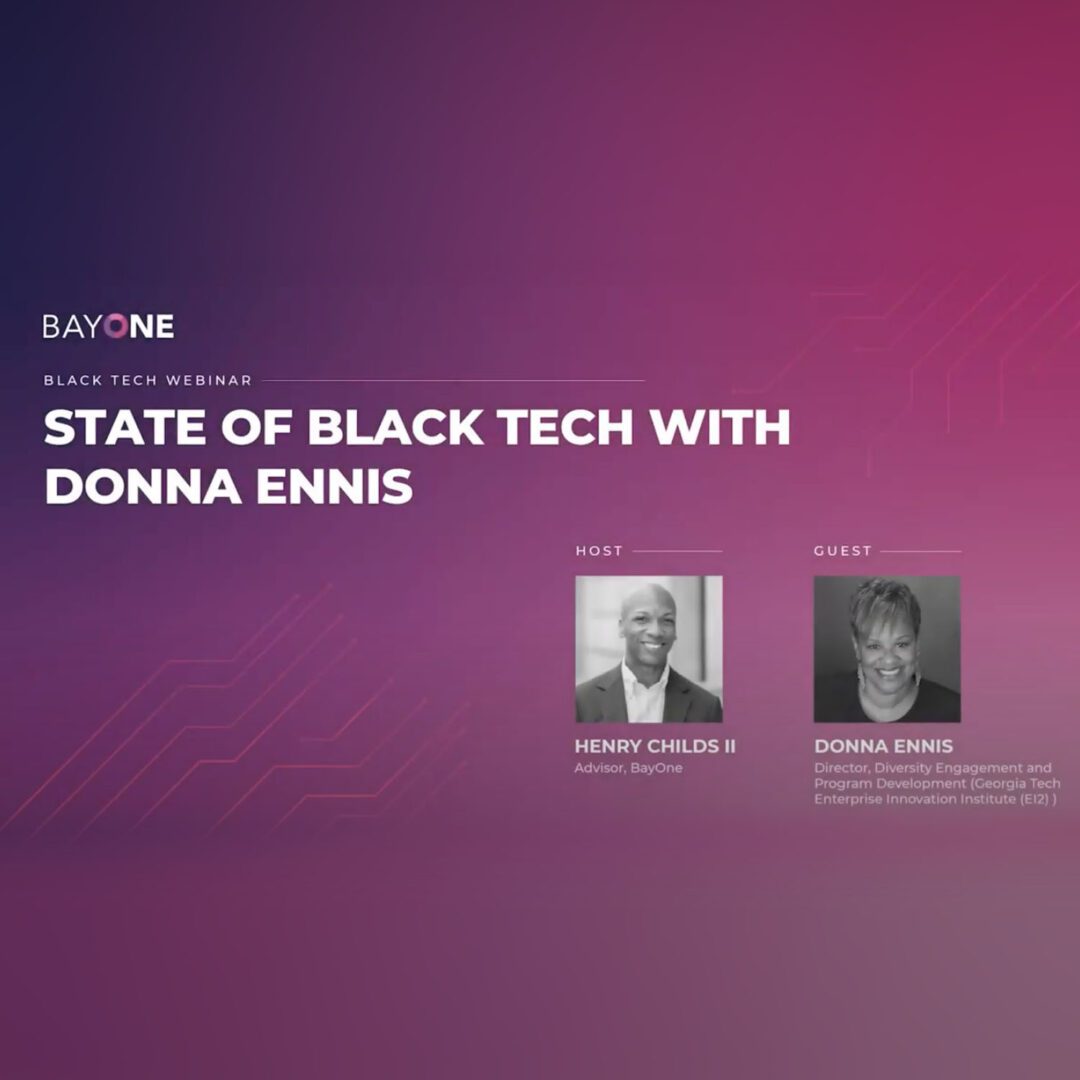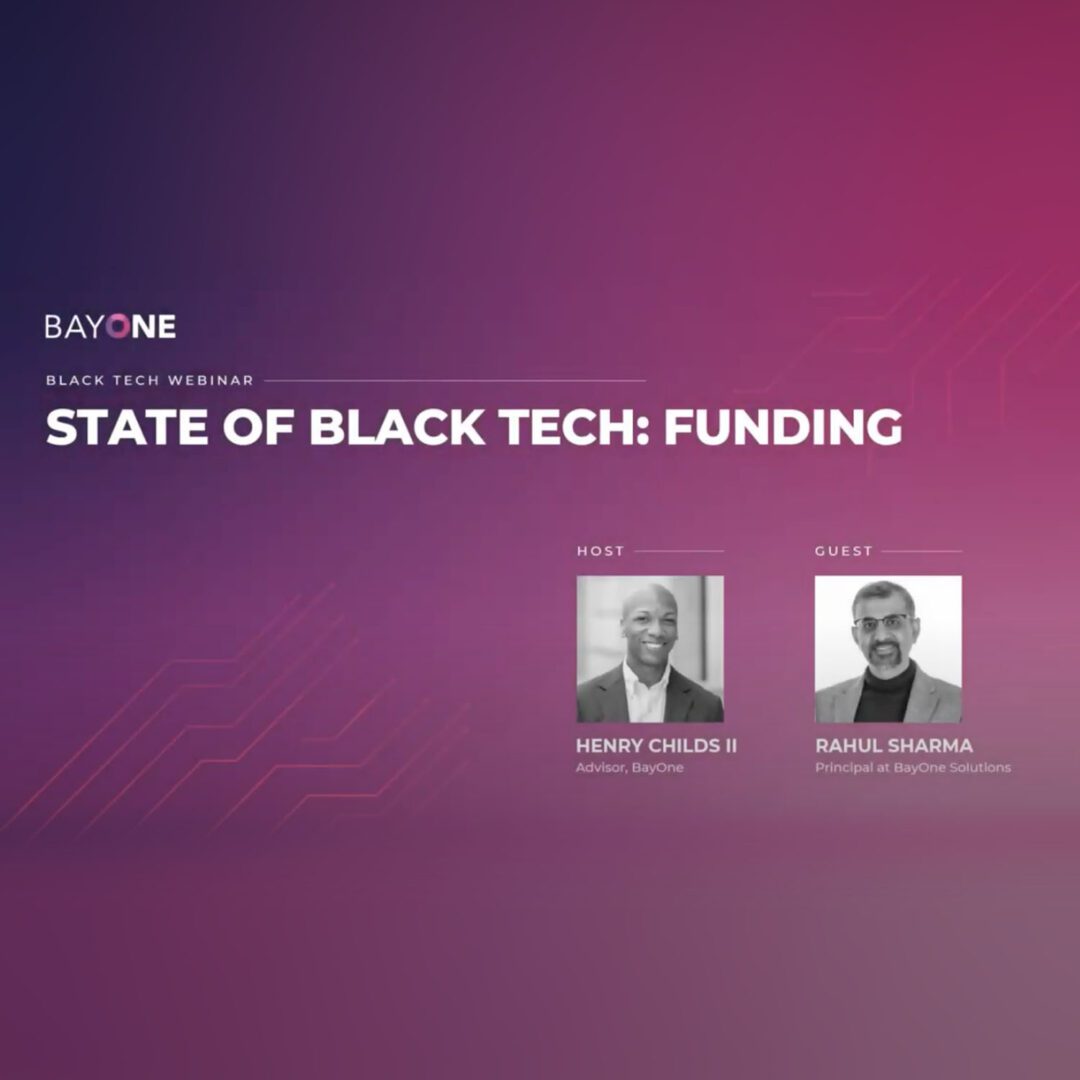Less than 1% of venture funding goes to Black founders—and just 0.006% to Black women.
In this no-holds-barred episode of The State of Black Tech, Tracy Gray joins Henry Childs II to unpack the deep systemic issues in venture capital—and what it’s going to take to break through.
From aerospace engineering to founding her own fund, Tracy’s journey is a blueprint in courage, strategy, and systems change. She’s not here to ask for a seat at someone else’s table. She’s building new tables—with jobs, wealth, and equity at the center.
What you’ll learn:
• Why Tracy started her fund to serve women and people of color
• Why the VC system hasn’t changed—despite the data
• What systemic change in funding actually looks like
• How wealth = power = agency
• Why it’s time to stop asking to be included—and start building
—
Timestamps:
00:08 – Why funding Black entrepreneurs is critical for racial justice
01:17 – Tracy’s career journey from NASA to venture capital
04:56 – Building her own $100M+ fund focused on manufacturing + export
06:36 – Why high-wage, future-ready jobs matter for BIPOC communities
09:17 – The problem with the venture capital system
11:50 – Why Tracy wants to co-invest with women of color
14:00 – Final vision: Women as capital controllers, not just donors
—
📌 Follow Tracy Gray & explore her work at [link]
📌 Watch more episodes of The State of Black Tech with Henry Childs II
Subscribe for more conversations about tech, equity, and building a better ecosystem—for everyone.
[Music]
Host:
All right well, we thank you for joining us. I’m excited to have Tracy Gray here today, and we’re going to talk about what to me is the number one most important topic in the racial justice movement—and that’s funding Black entrepreneurs.
We’ve heard a lot, especially after the George Floyd murder, about how to help the Black community. I believe the way you do that is through wealth creation. And we all know that entrepreneurship and building Black businesses is the path to wealth creation in our communities.
But the problem is, there’s a lack of funding. Tracy, I know you know this—I know this—you’re knocking on doors and there just doesn’t seem to be a lot of people writing checks.
So what we’re trying to do here is get more access to people like you who are actually doing the work of funding the next great Black company.
So with that, I’m going to jump into questions. Tell us a little about your background and how you got into raising a fund.
⸻
Tracy Gray:
Yeah. Well, I started my professional career on the space shuttle program. I was an engineer on the space shuttle program. So I always say, when people try to make funding Black people difficult, I say: it’s not rocket science—because I was one! We know it’s not that difficult to do.
I was in tech, and I love technology. I get bored pretty easily. But throughout my life in tech, I was always the only—either the only woman or the only Black person.
I got into venture capital by accident. I did a little stopover in the music industry, and one of the people I worked for became a VC here in Los Angeles. I had never heard of venture capital before—that was 1999—and even though I was in tech, I just didn’t know about it. I wasn’t in those insular networks—mostly white men.
I was criticizing his investments without really knowing the lingo, and he said, “Why don’t you come in and be our analyst and stop criticizing from afar?” I was like, “Okay.” I like new things, so I did it—and I loved it.
But again, I was the only. Only woman investment professional. One Black guy was a partner, but all the women were admin staff. They wanted me to raise another fund with them—their third fund—because I had access to economic development money and politicians through my ex-husband. But I said no. I didn’t want to bring public dollars to private equity that doesn’t include people like me.
So I said, I’m going to start my own fund. And I didn’t know you weren’t supposed to be able to do that as an analyst. I’m glad I didn’t know. Not knowing didn’t stop me.
What did stop me for a while is what stops a lot of Black women—we think we need validation from external things. I wanted to understand the nexus of private capital and economic development. But I didn’t know anything about economic development, so I went to a nonprofit… and it wasn’t my jam.
Then I thought I needed an MBA. So I got two—from two top ten schools in a joint program. Came out ready to launch my fund. We got an anchor investor. Then the Great Recession hit.
I still wanted to come back. I worked for the Mayor of LA, focused on manufacturing and exports. I saw a blue ocean way to invest. Companies that export are more successful, resilient, create jobs faster. Add manufacturing to that? Even better. Higher wages, healthcare—these are jobs of the future. Clean jobs. And ultimately—wealth-building jobs. That’s the goal.
⸻
Host:
What size fund are you raising? And how do you measure success?
⸻
Tracy Gray:
We’re raising $100 million. We’re an early growth company firm, so later than early-stage startups. But we’ll do a handful of startups—especially those that should be exporting immediately.
And I specifically wanted a $100M strategy. Why? Because people tell women—especially women of color—to raise less. You see a lot of $10M–$30M funds. I don’t think a Black woman has raised over $100M for her first fund. I want to break that.
Some banks tell me to raise more. I’m like—first you said raise less, now you say more? Just give me the money and let me invest!
Our strategy could support $200M. But I want to cross that $100M psychological barrier.
Success, to me, is when we’re not the only fund doing this. When we’re not even having the conversation about “how do we get more capital to Black people?” That’s when we’ve succeeded.
Yes, I want to be successful. But more than that—I want to change a system.
As an engineer, I think in systems. If one part doesn’t work, the system fails. You have to look at it holistically. That’s what I’m doing—at both a micro and macro level.
⸻
Host:
Let’s talk about the system. In 2020—a record-breaking year—less than 1% of total VC went to Black founders. Why would anyone want to be a Black founder?
⸻
Tracy Gray:
Exactly. And for Black women—it’s 0.006% of VC. That’s literally a rounding error.
All the data shows diversity brings higher returns. But they don’t care. The system works really well for the white men who built it. They’re 98.7% of all asset managers globally. They make the money. Why would they change?
I don’t even use the word “inclusion” anymore. I don’t want to be included in their spaces. I want us to create spaces for ourselves. They can come to our table.
Our culture has become afraid of “the other,” afraid of what we don’t know. And lazy. It’s easier to look to your left and see another white guy to invest in than to go out and find companies where we are.
⸻
Host:
Are there any VCs you want to shout out who do care?
⸻
Tracy Gray:
Absolutely. My women-of-color cohort is doing amazing things.
• Gayla Jannino Burns at Rockstar
• Carmen Halifax at 2045 Ventures
• Norma Cadena at Supply Change
• Bahiyah and Yasmine Robinson, who started VC Include
We’re all raising funds and want to co-invest together.
• Carmen’s focused on immigrants
• Norma’s solving supply chain issues through investment
• I’m focused on manufacturing and exports
• Bahiyah’s focused on building the system that brings capital to all of us
Also Taj Eldridge at LA Cleantech Incubator—focused on green jobs for Black and brown communities.
We’re already working together, but I want to do more co-investing. I’m also on the investment committee for Fearless Fund.
⸻
Host:
What’s your vision? Let’s say the fund is successful—what do you want your legacy to be?
⸻
Tracy Gray:
The UN says it—the path to change is through women. Especially women of color in tech and manufacturing—these are the foundations of our economy.
I don’t want women thinking they should just give money away or invest wherever someone tells them to. I want women to feel power in their wallets. Not “empowered,” but to have power.
Power doesn’t mean you’re hurting someone. It means agency. It means you control your destiny. You can influence policy, support charities that reflect your values, and invest in businesses that change the world.
When I leave this Earth, I want people to say, “We don’t need Tracy on a platform anymore. We got this.”
⸻
Host:
That was amazing. Thank you, Tracy Gray. We’ll include links to her work, and we hope you’ll join her in building this ecosystem.
Stay tuned for the next video in our State of Black Tech series.
